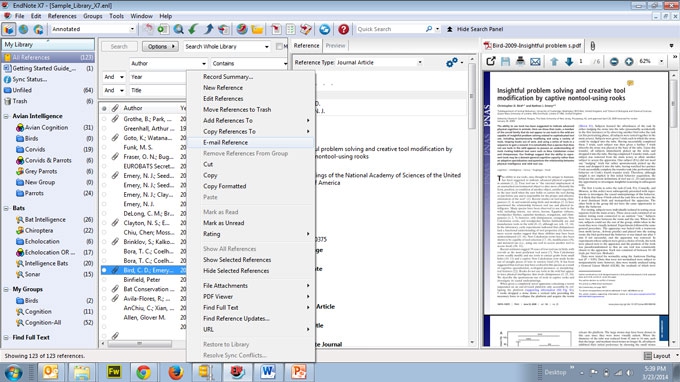
The search term must be 3-120 characters in length.

Note optional fields further down the screen. Enter the information from your reference in the appropriate fields.Select appropriate reference type from the drop-down menu.Click the Collect tab, then New Reference.All imported citations are put in the "Unfiled" group.OPTIONAL: If you cannot find the filter you need in the drop-down menu, click Customize this list to see all options.The vendor is the company that provides the database and is usually prominent on the screenĮxample: Academic Search (database) has EBSCO as the vendor.If you found records using Multisearch, select CSUN Multisearch.If you are importing records from the library catalog, select CSUN Library Catalog.Select the file format or database/vendor from which you obtained the citations in the "Filter" drop-down menu.Click Browse to select the import file.In EndNote Web click the Collect tab, then Import References.

Search a supported database and save desired citations as plain text (.txt) files. Other databases require saving citations as a text file before importing.

You can import citations from the Biological Abstracts (ISI), Zoological Records (ISI), MEDLINE (ISI) and EBSCOHost databases directly into EndNote Web.

Once you have created an account, you can log in to your account by going directly to (a new window will open).Enter the required information on the left-hand side of the menu, including a Login Name and Password.Go to EndNote Web (a new window will open).You can import citations from a variety of sources and choose a variety of citation styles for your works cited/references list, including APA and MLA. EndNote Web is an online service you can use to manage your citations and produce a "Works Cited" or references list.


 0 kommentar(er)
0 kommentar(er)
